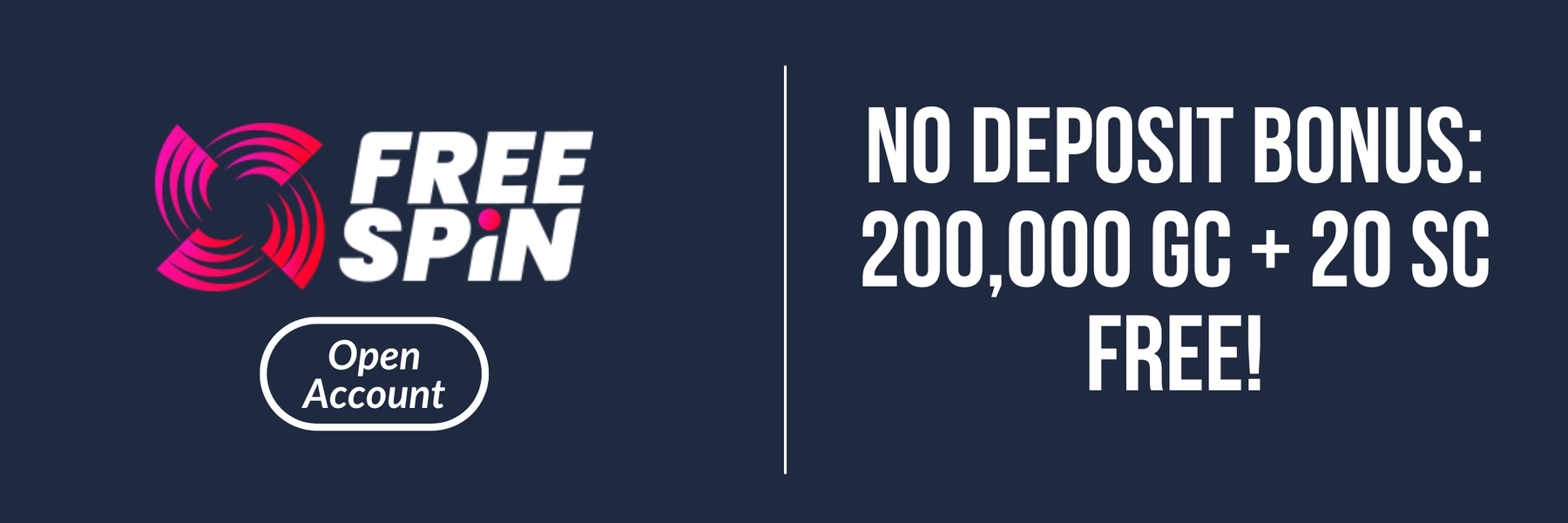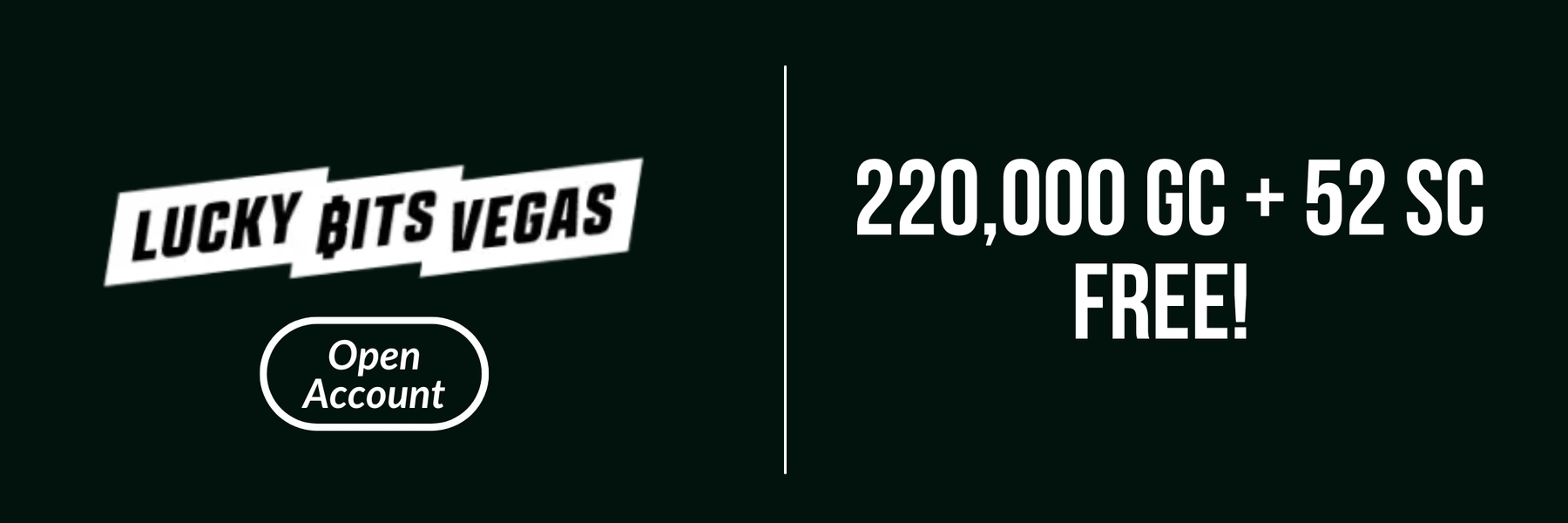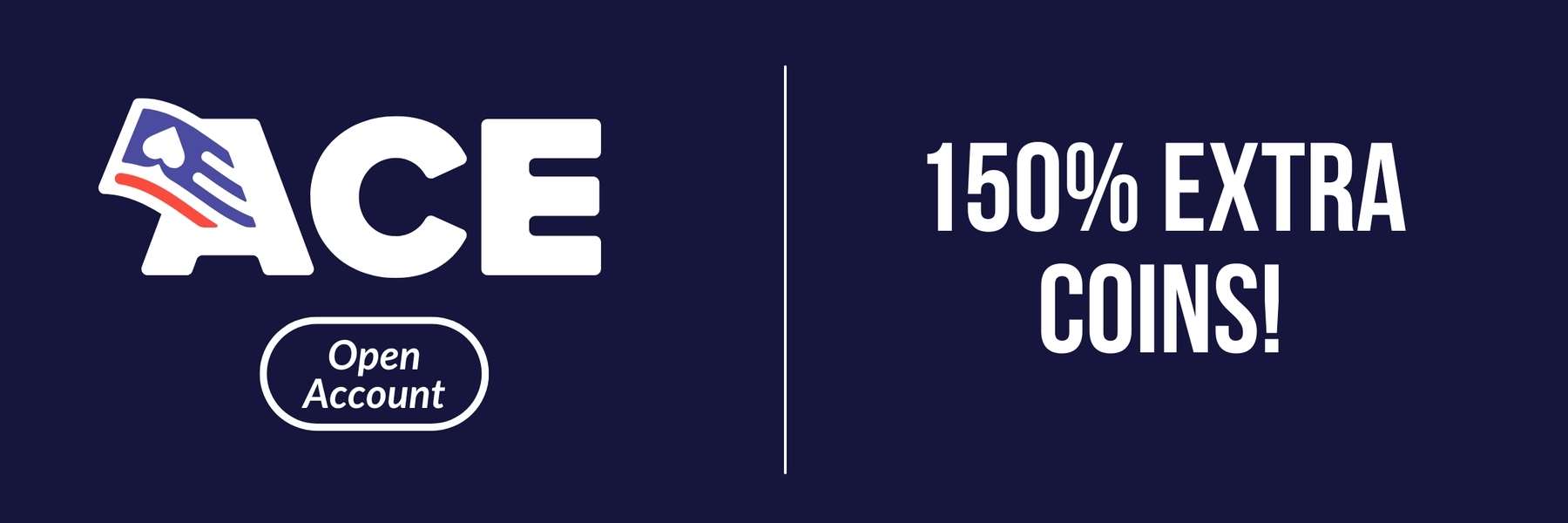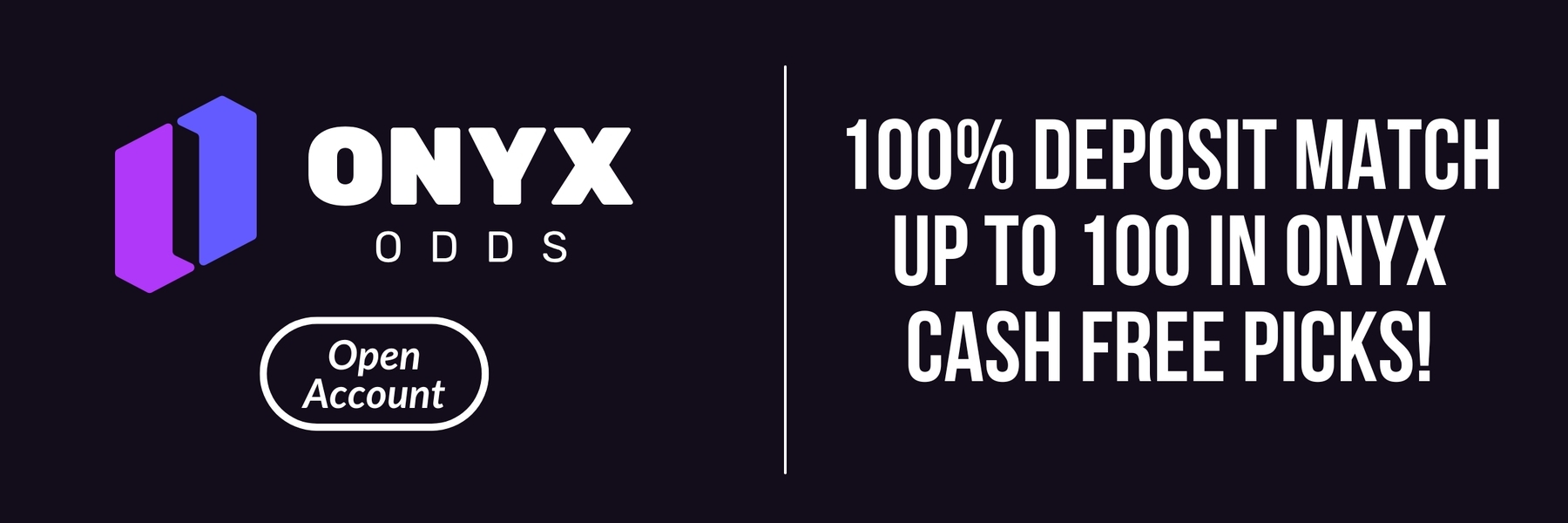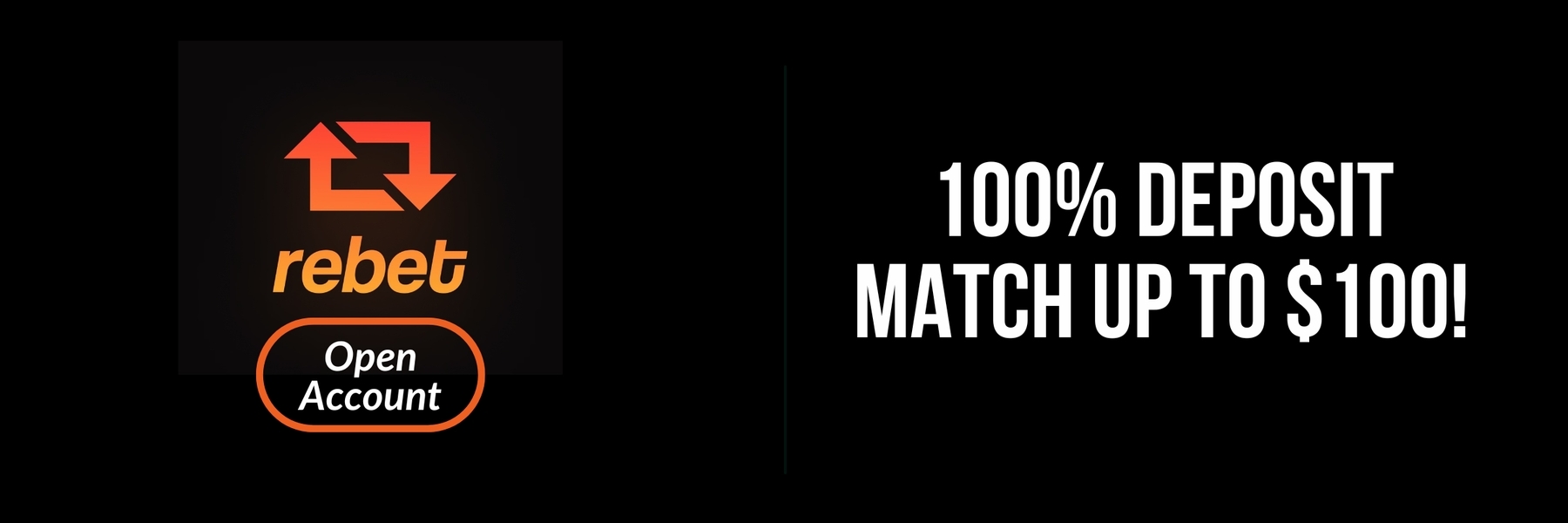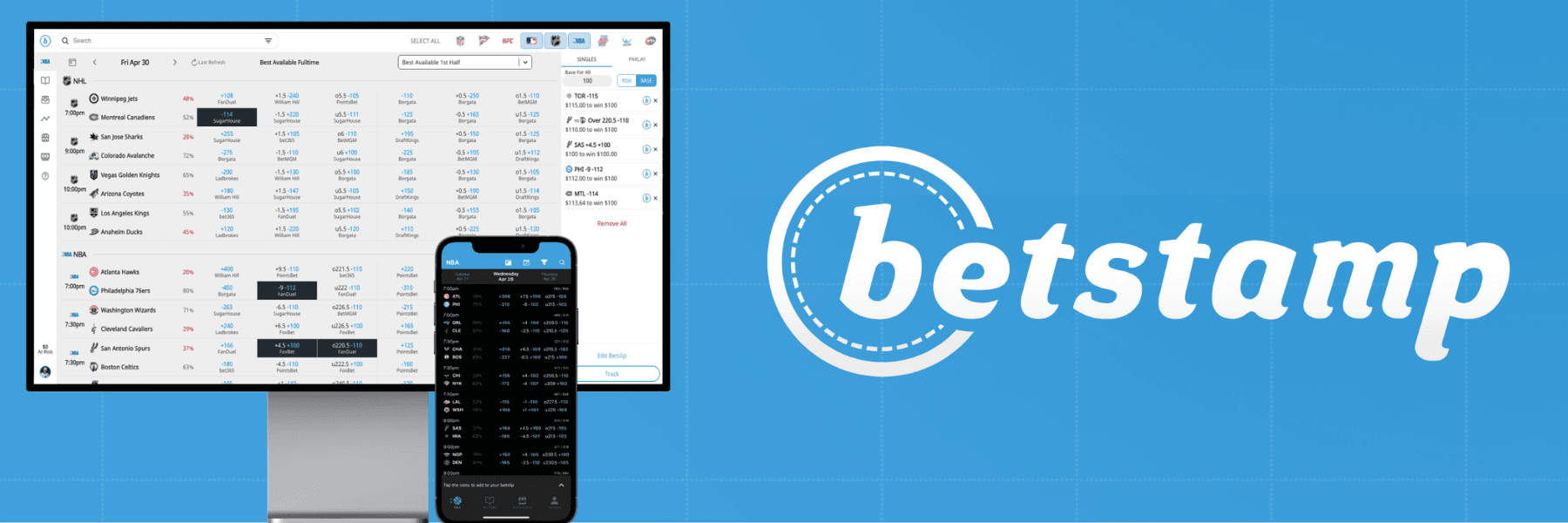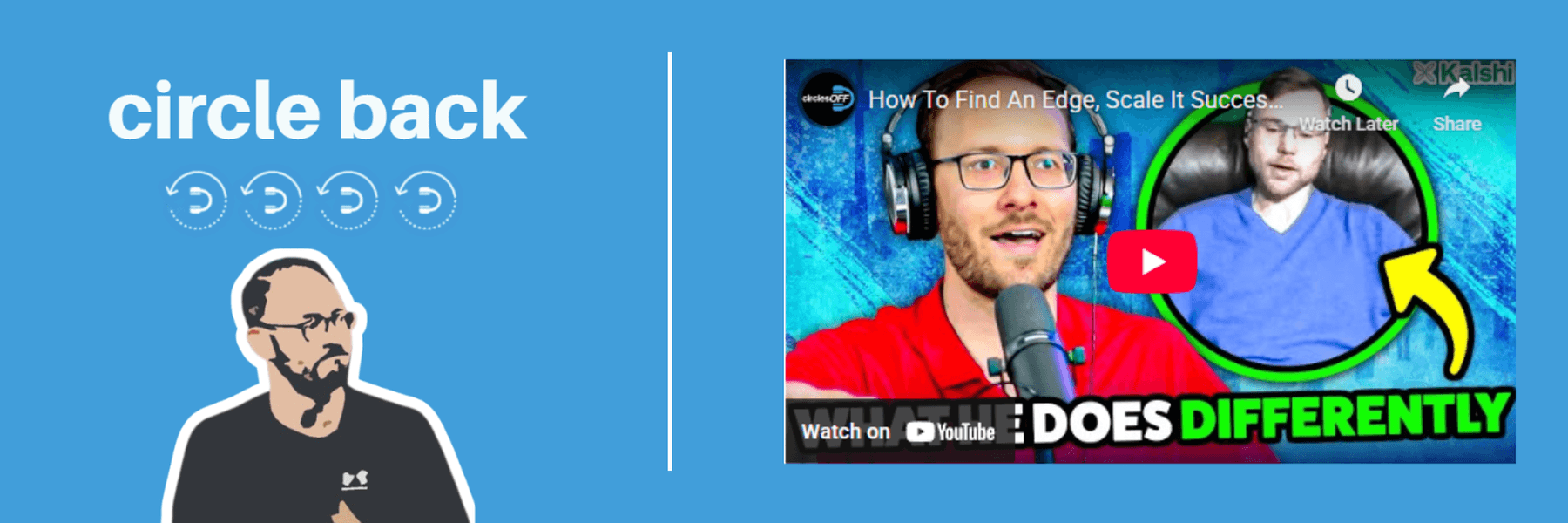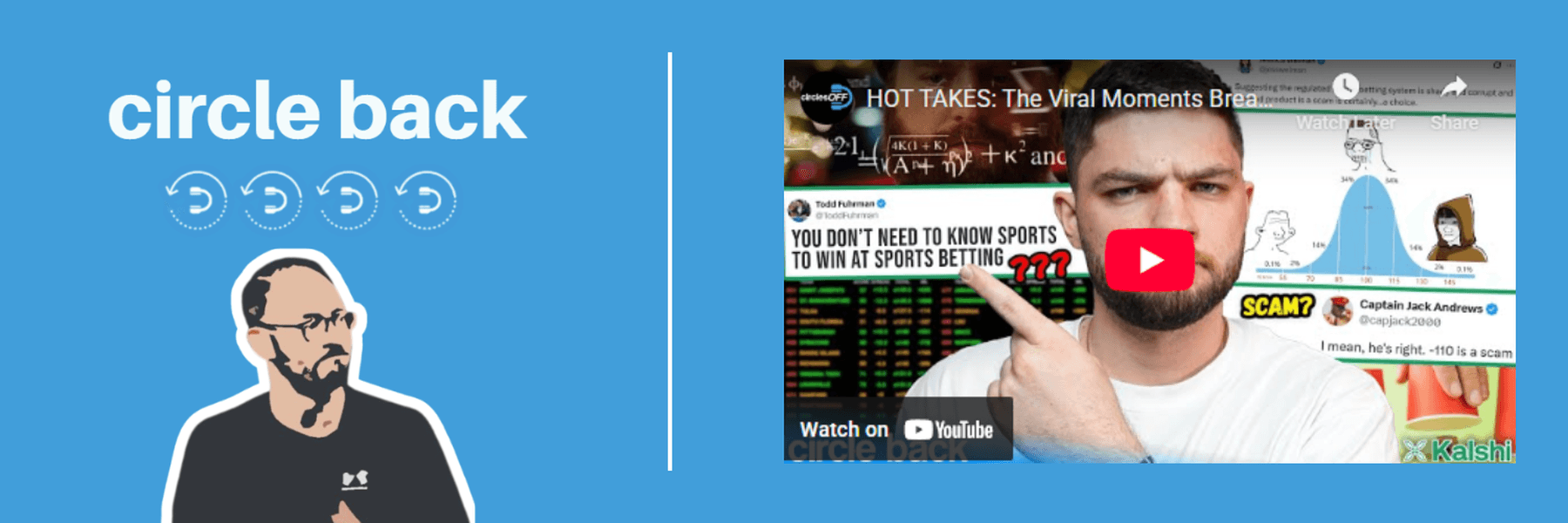00:08 - Rob Pizzola (Co-host)
welcome to circles off episode number 54. I'm rob Pizzola, joined by johnny from betstamp. How's it going?
00:17 - Johnny Capo (Co-host)
rob, we're still waiting on that new intro riff that you were supposed to make for us it's a good point, I will get around to it.
00:24 - Rob Pizzola (Co-host)
Eventually it is golf season now, so we're probably going to have to wait, and then it's going to be football season and we're going to have to wait some more, then it's going to be golf season. So the realistic odds of me producing this intro riff plus 750 at this point, I wouldn't expect anything higher than that I actually wouldn't even bet the plus 750.
00:43
Uh, for those who are listening, um, on spotify or on itunes, um, please rate and review five stars if you can, uh, and if you're interested, subscribe on the youtube channel at bet stamp on youtube. Uh, if you want to watch the video on a weekly basis and we do read the comments for guest suggestions and so on and so forth. And we did get a guest suggestion through Twitter for our next guest on this week's podcast. He tracks his bets on Betstamp. That's where we first heard of him. You can follow him on Twitter at CliveBixby41. Same handle on Instagram and TikTok if you want to follow him there. He's a plus EV sports. Better. You can also check out some of his stuff at Sports Wager U on Twitter as well. Has built up over a 6% ROI, over 3% closing line value on a very large sample. We welcome Clive Bixby into Circles Off. How's it going, clive?
01:38 - Clive Bixby (Guest)
Going. Great Thanks for having me, you guys.
01:40 - Rob Pizzola (Co-host)
Yeah, no problem at all. You've been one of the most followed users on BetStamp and one of the most highly requested interviews. We did an interview with I'm going to butcher the name again Telemachus Model a few weeks back, which was a pretty big hit, and I think it's interesting for people that are out there to hear from new faces and new names that they haven't heard from before. So we appreciate you joining us. We always start with some sort of betting background on our guests, so let's get right into it. Let's hear your story and how you got involved in the betting space.
02:14 - Clive Bixby (Guest)
Yeah.
02:14
So my betting story really and I think this probably comes up with a lot of different sports bettors started in poker, probably played low mid stakes online for 10 to 15 years, started with the movie Rounders and, you know, got really into that, so not all that uncommon.
02:34
Played professionally for a few different courses of my life when I was in between different jobs and always just been interested in games and trying to solve things and trying to figure out ways to make money in, I guess, unconventional kind of ways Over the last few years since sports betting became regulated. I live in New Jersey and you know I have a pretty big amount of books available to me. So it started off just learning through different promos, like all right, can I be profitable doing this? And I learned that even without the promos when I looked at my record, my EV, and it was like wow, all right, I'm doing okay with this. Then I kind of expanded on it and continued to build. Then COVID hit and from there had a lot more time available to it and just really started dedicating myself to trying to understand the different markets, understanding the value of line shopping and realizing that there was a lot more to it than just handicapping the game.
03:39 - Rob Pizzola (Co-host)
Interesting. So now, when you started as a poker player, were you betting at that time on sports at that time? Or was this some sort of thing that you just moved on to with regulation?
03:50 - Clive Bixby (Guest)
I just moved on to. I mean, I was betting in some unregulated markets, but not anywhere near what I'm doing now, just here and there, mostly baseball and NFL, and it ended up turning out that NBA has been by far my best sport, and that was not even something that I was really betting on all that much maybe a little bit in college, right.
04:13 - Rob Pizzola (Co-host)
So now let's go through the evolution as a better. Now for me. Me and Johnny come from very different backgrounds, where Johnny was pretty quick, he jumped into the betting and was a successful better almost immediately. For me, I was a losing better for a decade before I actually, you know, started to realize what my faults were and flaws. What was your first experience in the betting space? Did you find that you jumped into it? Like, obviously having the poker background helps in terms of understanding strategy plus EV, so on and so forth? Did you immediately find yourself with a winning strategy or winning as soon as you became a sports better, or was there some sort of learning curve for you when you jumped in?
04:53 - Clive Bixby (Guest)
Honestly, there wasn't a ton of a learning curve for me. I was very lucky and very fortunate. But I think it's probably because I had so many friends that were into sports betting and even though I wasn't too heavy into it myself, it was just always interesting to me how like the lines were set and that lines would move and the different prices and things like that. So people would ask my opinion always been a huge sports fan and I've always, especially with the NFL, kind of set my own mind Well before the next week's games come out. I would think, especially with the NFL, kind of set my own mind Well before the next week's games come out. I would think, all right, I think this game is going to end up here, this game is going to end up here, this game is going to end up here. And then over time it's like well, it turns out that I'm right a lot more than I'm wrong and as I've probably gotten better, the percentage of where the lines moved in my favor became better and better.
05:44 - Johnny Capo (Co-host)
So were you doing this? Um, I mean, I guess I'll ask this right now.
05:50 - Clive Bixby (Guest)
Are you doing this full-time? Is this a full-time gig for you? It's not, um, which is even more surprising, I think, because it does take so much time. Um, this is not the full-time thing for me, but I put so much time into it and it's. It's easy to get burnt out too, especially when you're doing multiple sports.
06:07 - Johnny Capo (Co-host)
For sure. So I mean, I guess, if you don't mind me asking like uh, you know just generally what is your full-time gig, what's the day job, so to speak.
06:14 - Clive Bixby (Guest)
So I work in strategy and analytics uh, in the pharmaceutical industry, so a normal nine to five. I work now remotely. My office is in the Boston area. But the funny thing is, once I started becoming more successful at sports betting, I realized I didn't want to go back to the office. So I wanted to have a position where I can continue to do both, and not that I think I want to do that forever. But I then took a job that I knew was going to be remote and I would never have to really go back to an office, except for, you know, an occasional meeting or, you know, conference, things like that. So I kind of.
06:52
I kind of started shaping my career around the sports betting aspect.
06:56 - Rob Pizzola (Co-host)
Got it. So you're valuing the flexibility of being able to work remotely and kind of do things on your own time.
07:02 - Clive Bixby (Guest)
Yeah, so a lot of my work is typically done the night before you know games happen. So like, if I'm you know six, seven, eight o'clock NBA games for the next day, I'm already working on my numbers for that stuff and ready to go. If I want to bet some overnights, I can hit those. If I want to bet the next morning, if I'm waiting on lineup news, stuff like that, I still have, you know, like, my screens up, ready to go and try. The best way that I can do it is be as prepared as possible.
07:31 - Rob Pizzola (Co-host)
What do you think your, your breakdown is like? Maybe percentage wise, or however you want it, to describe it in terms of um? You know, I don't even want to say betting overnights, but let's just say betting ahead of time versus reacting to news that becomes available.
07:48 - Clive Bixby (Guest)
Uh, probably 75, 25. So three to one roughly. Uh, overnights, early betting, um, the thing with the NBA this year was it was so, uh, so dependent on lineups and getting late news that I'd think about it in the way of well, where do I think I have upside? If I think that the side that I like really has a low percentage chance of a key player sitting because of the way that the schedule went back to backs, uh, usage over time et cetera, then I'd be fine making that bet. But if I thought there was a decent chance that you know, well, this is game three or four. You know, maybe Giannis and Middleton and Holiday aren't going to play tonight, but I like the Bucks on this side. I have to wait until I know that that game is solid.
08:37 - Rob Pizzola (Co-host)
Got. It Makes sense. Okay, let's walk through your handicapping process. I don't want you to give away, you know, anything that you feel is going to hurt your edge, but obviously there are tons of ways which you can break down a game. So let's use the NBA as an example. And I know that you bet other sports, mlb football, as well. I've gone through your entire BetStat profile and I see the breakdown. So do you model the games yourself, some sort of statistical modeling? Do you handicap them using some more traditional methods like breaking down box scores and not specifically having a model? Just walk us through that process of how you arrive at a number on a game.
09:16 - Clive Bixby (Guest)
So last year for me for the NBA, it was much more in the traditional sense, like you mentioned kind of going through box scores, look to use basketball reference and team rankings you know data a lot just to kind of get some ideas of where I thought the number should go. And I was really doing a lot of work following, you know odd screens and paying attention to which way lines moves for a particular team. You know day in and day out. So combining that with box scores and teams that I thought were undervalued and overvalued, that's how I was doing it a lot last year. This year I built something that I wouldn't call it a pure model, but in a sense it was creating my own team rankings based on the stats that I was looking at before and looking at trends over time.
10:00 - Johnny Capo (Co-host)
So taking a look at what if the spread's minus one and a half and you think it's, you know, 4.566? That's the same as if you think it's like 7.66 or 2.66. You're still going to bet that minus one and a half. So, um, that's definitely a way to win money betting sports in the long run. I think it's really cool that you're able to outline that. I also notice on bet stand there's a lot of like you know injury news or you'll play a book.
10:25
We've actually gotten like a few complaints from specific you know users or people on Twitter who are like these people are just like steam chasing lines and whenever news comes out, they'll bet the other side, and we've done a lot of analysis into this on our product.
10:40
Oftentimes, you know the lines are never going to be, you know, moving in a platform like us up to the second, exactly, exactly. We try to get it as quick as we can, but for the most part, what people don't realize is a lot of times, um, you know a player will be moved out and then you'll see, let's say, a user like you or somebody else betting the number at, like you know one of the regulated sports books and, uh, people will be like, ah, that that line wasn't there and it's like go check, it's actually there, yeah. So I wanted to get your thoughts on that. And Rob mentioned like kind of reacting to news and stuff like that. Is that a part of your business and how do you manage it? You know what? Also, you have a full time job and you need to be working on other things.
11:20 - Clive Bixby (Guest)
Yeah, that's definitely part of it. You know, I was listening to what you guys did with Hitman the other day and he was talking about the NBA and injury news and reacting to that. And yeah, that's a part of it. I mean, anything that you can get that's information and you can beat the market to it. I mean, why wouldn't you bet it? Would I say that's a huge part of what I do. I don't know, maybe 25, 30% of those games are injury news in the NBA. Maybe not even that much, but more often than not it's a side in a position maybe that I already liked and I was just waiting on it. But for the app itself, I mean, when I first joined I just kind of wanted to document what I was doing in my evolution and show that you can make money doing this and have a good, solid, profitable experience by line shopping, getting CLV being a high volume, better and winning.
12:21
Did I notice that there are a couple of books that maybe don't react right away? On BetStamp, yes, that happens. I mean mean people can game almost any system. Um, I mean you have people out there and I know you know I'm gonna be, or you probably have a good idea who I'm gonna be talking about who want to try things with pen and paper and think that that's the way to go. Um, I mean, come on, but I mean, come on. But I think over the long term, if you look at when people are placing their bets on Betstamp, there is the time that you could see when it was bet and you could see where it was bet If you know an injury came out two hours earlier and you see a bet after. That's still a stale line, like I think Proline was one of. Think Proline was one of the books that was really late to adjust. On the app itself.
13:12 - Johnny Capo (Co-host)
Yeah, that's actually no latency on that feed, that's a direct feed.
13:16 - Rob Pizzola (Co-host)
They just move so slowly.
13:18 - Clive Bixby (Guest)
Oh well, there you go. Maybe I'm in the wrong place. Then I should probably be where they are. That was one or Points bet would put up a book or not. A book points would be a book. That would put up a line and injury might happen. They take it down but that line might stay up there for an hour or two because there hasn't been a line to replace it. I I've seen people on the app that that definitely game that. Transparency for me is like the biggest thing. That's why I joined Twitter, that's why I joined Betstamp and hoping to help people along the way, and any bet that you see that was made on Betstamp is a bet that I have a bet slip for. I will say this and again, in transparency, I never take a line that is better than what I can get. But there have been times where there are better lines available for books that I don't have. That I don't bet, that I don't put on there. Yeah.
14:14
Everybody's got to take my word for it, I guess, but that's, that's the way I try and operate, because I want to be as accurate for my records, as I can, of course, for sure.
14:21 - Johnny Capo (Co-host)
I think uh, it gets lost in the sauce a lot of times, but Rob's said it on Twitter before it's like this is the point of BetStamp. The point is, is not that every single thing you see on there is going to now be like the be all end all in the industry Although we hope to get it there within the next year or so but really what the point is is if somebody, if you see someone's record, now it's all there. You cannot delete those picks. They're all time stamped with the book, with the line that was available at that time. So now it's it's matter of hey, anyone who's on here who I want to follow, or you know, put up my own hard-earned money and tail this person or buy their picks or whatever it might be. You can actually see every single thing that they are doing and then you can now say, all right, this guy I'm, I'm gonna hit that follow button, I'm going to bet everything he bets out.
15:07
What time of day is he submitting his picks?
15:09
Is that a good time of day for me to also be tailing them?
15:12
Is he submitting them every morning at 10 am or is he submitting one pick sporadically every three days.
15:18
That's something that now you have a confirmation of beforehand. And when it comes to the line moves and stuff like that, yes, there are errors and we do clean up and, you know, a lot of times adjust those records because we need to if there's ever data feed errors, which a lot of the sports books have, data feed errors and then they delete those bets. So, like it is hard for you know, a third party to go ahead and be like 100 percent all the time, but we're getting there and then you know it's very helpful and thankful that you hear words like that where you're saying you just want to be as accurate as possible on the app and knowing that most of the time what you're playing is actually the exact numbers you're getting, not taking advantage of anything and if you are, like I said, steam chasing and injury news or anything like that, most of the time those lines are available, especially from a state where you are, you know, like New Jersey.
16:06 - Clive Bixby (Guest)
Yeah, and that's the other thing. It's I kind of wanted to show people what's what's possible, and if I'm doing it, that means that somebody else can be doing it too, so you can do the same exact things that I'm doing from a. You know, if you think that I'm reacting strictly to injury news, well then go ahead and do that. I mean that makes some money doing it, why not? You know, ahead and do that. I mean that makes some money doing it, why not? You know, I've also sent some Twitter messages back and forth to the Betstamp account when I would see things that were inverted. Like there are sometimes NBA games like on five dimes. That would be the exact opposite, like team minus five plus five. It would be flipped. I'm like all right, hey guys, just so you know that this is here. I mean I'm sure there are people that are out there that were using those numbers to try and boost stats or whatever. That's not me. I wasn't looking to sell picks or anything when I joined Betstamp. It was more just hey, chart the journey.
16:59 - Rob Pizzola (Co-host)
No, we completely get that and over time we've actually been working to eliminate that as much as possible because of users like you. But we have mechanisms that alert us in real time whenever someone logs a bet and immediately gets a certain clv percentage, for example, and then we can manually change those around. Now obviously we want to have it as automated as possible. But to johnny's point, I mean we're we're working towards 100 in terms of verified record keeping. Don't know that we can ever truly get 100%, but we're as high as we've ever been right now. So do appreciate that.
17:33
I just really want to ask you one thing I think is very interesting. It's sort of a backtracking, because you obviously at some point identified that closing line value is important and you talked about it a lot so far, working to beat the market. This concept is lost on a lot of people or they just never really grasp it or understand it or find it. I know for me the notion of betting into a market was not something that ever dawned on me. I always thought it was me against the sports book. They're trying to bait me into taking this. This is a trap line, so on and so forth All the BS that basically has been commonplace in the market and in content for years. How did you figure out closing line value was valuable?
18:25 - Clive Bixby (Guest)
So when I got started seriously, there were three podcasts that I listened to seriously, this being one Spanky's podcast and Rufus and Bet the Process. Rufus and Jeff.
18:37 - Johnny Capo (Co-host)
I'm going to have to ask you to rank those podcasts one to three.
18:43 - Clive Bixby (Guest)
I'll hold off on that. I'll hold off on that. But that's where I first got the idea of closing line value, line shopping and things like that. And what I did was I did analysis. And before I knew better, before I even knew what Don Best was, the Action Network has their own little odd service, odd site that has screens. But they also have historical line data has the opens, has the close.
19:09
As I was looking through that data, I wanted to see how much it was worth if I beat the line by two points, if I beat it by one and a half, if I beat it by three, what did that equal in terms of winning percentage? And I went through that for different sports and that's when I realized all right, well, if you know you're going to beat this market by two points or more, you're looking at 56, 57%, you know, for NBA totals as an example, and that's what I started shooting for. So as I was looking through those games and making my predictions of where I thought the line would go, how many times was I getting? You know two points or more. And you know. That's that's why closing line value became so important to me.
19:52 - Rob Pizzola (Co-host)
Makes sense. That's um. I'm glad to hear that this was educational for you when you were starting out as well. That's um. That's important to us and as part of the reason that we do this um. So now I guess we we move on to your, your successful um you're making Rob.
20:06 - Johnny Capo (Co-host)
I got one one good plug. Here is this so where do you? I mean, I know the answer is, but where do you actually track your closing line value? Okay, so here's. Here's the plug. Here is if bed stamp didn't exist right now, what would you need to do and what info would you need to actually track that closing line value?
20:23 - Clive Bixby (Guest)
So I did have something before bet stamp. I built something in an Excel file, um, where I would blend the closing lines of pinnacle, circa and Chris to get a um, a big free closing line, and then I would calculate what the expected value was based off of that. It was a pain in the ass.
20:44 - Johnny Capo (Co-host)
Did you have to manually pull those or did you have some sort of like scrapers that you see? Manually did that for every bet you had, yep, okay, and then you'd go ahead and input if the bet what, what number you got with the exact number and then what the line was, then you drag down that formula, I presume Correct.
20:59 - Clive Bixby (Guest)
It was a nightmare.
21:00 - Johnny Capo (Co-host)
Okay, so how? How much time does bed stamp save you then, in terms of calculating your clv, let's say on a weekly basis?
21:06 - Clive Bixby (Guest)
oh, it's immeasurable, it's absolutely immeasurable um, amazing, glad to hear.
21:11 - Johnny Capo (Co-host)
I mean, listen, I threw that in on purpose. I had to cut off rob for that, which I don't like to do normally so all right but but really like the power is is.
21:20
Uh, you know, everyone experienced that same thing, myself included you. You really need to be tracking where the numbers is closing and what value you're getting right, because you need to be able, as a better, to actually see if what you're doing is the, is the indicator of success right? Your results that you have over a short sample size are not going to be your truest indicator of success. It's going to be that, in combination with other metrics, and closing line line value is one of them that's so important. So by tracking that, alongside your ROI and your win rate over like a one month sample, two month sample, three month sample, you're going to be able to determine if you can win, what books you can win with, what sports you could win at, and things like that.
22:00
And if you don't have a tool like BetSam, for example it's really one of the main reasons we built it is for this is if you don't have a tool like betsam, for example. It's really one of the main reasons we built it is for this is if you don't have a tool like this, you, literally the average person cannot do this. It's way too much work, it's way too time consuming and it requires probably, uh, the amount of depending on your volume, uh, a data entry amount that is potentially even more than the amount that you're that you're betting. So it really really doubles your work scope and we're really happy to have this tool and we encourage, even if you're a person who's not betting a thousand plays a day. You might only be betting two, three games a day. Put it in there, just try it for one month is all we ask and see if that can make a difference in your day-to-day betting. So sorry to cut you off, clive and Rob. We'll get back to Rob's question. I really wanted to make that.
22:44 - Rob Pizzola (Co-host)
Well, even just to add, like, automation is huge, right, you know, as Clive mentioned, and as pretty much every better that we've had on this podcast has mentioned in some capacity, it's a lot of work, right, it's a grind. And then you add record keeping on top of it and having to track that on a daily basis and now try to do your own record tracking when you're in a losing streak, like you don't want to do it, you just it's painful, right, you sit at a computer and you're like I'm not going to, I'm not going to do this today. So there's the advantage of the automation doing it for you and, um, you know, it doesn't get put by the wayside. So, yes, that's the plug for BetStamp.
23:18
But what I really wanted to ask you, clive, was you know we've talked about your betting, but not so much your aspirations as a better like what? What is the next step for you? Are you content with what you're doing right now? Because there are some people who are just content making a certain amount off sports betting a year and working their day job, and I completely get that. I completely understand that you have the um, let's say, the reliability or the stability of working a day job, it doesn't eat into your day-to-day, so on and so forth. So for you, what aspirations do you have as a better?
23:52 - Clive Bixby (Guest)
That's kind of what I'm trying to go through and figure out.
23:54
Now I'm at the point where you know and here I'll plug Betstamp again If it wasn't for Betstamp there are a few betting partners that I have that I probably wouldn't have either it really helped me establish a lot of credibility as somebody that understood what they were doing and winning.
24:09
But I don't that in and of itself, too, can be a grind. Like you know, going out and grinding accounts or grinding to go get accounts and dealing with that part of it is something that right now is not the right return on time for me. If my bankroll was maybe 10 times what it was and I'm trying to get down 10 times what I get, I'd have to go that route. So I'm still trying to figure out what that looks like. What I do know is I'm trying to get to a point where it's more automated so that I can get a little bit better return on time. I don't wanna be sitting in front of a screen all day waiting for injury news and things like that, especially with the NBA. So so, trying to get to a point where I can automate more and then maybe I'd be willing to put a little bit more time into you know, trying to get accounts and things like that and build more that way.
25:02 - Rob Pizzola (Co-host)
Do you have a coding background at all? Not a good one. Okay, fair enough. Excel is about as far as I go.
25:09
Got it. Well, I mean, listen, I mean same with me. I have a coding background, but I still use Excel for a lot of the stuff I do. It's a more powerful tool than people realize. I was just curious because, yeah, I went about automating processes through Excel as well, where you click a button, scrapes everything that you need, runs everything that you need. But it took me. It took me a while to get there. That's the only reason I ask.
25:31 - Johnny Capo (Co-host)
So you mentioned not wanting to, you know, grind new accounts and stuff like that. How have you dealt with and I assume you know if you have been successful at any one particular book, you know dealing with the limits and things like that. Has that been something that has come into play being in a regulated state like Jersey? Yeah, it has.
25:51 - Clive Bixby (Guest)
I think one of the most underrated parts of being successful in any business is networking. As an example, because of my job and I have like three or four different trips over the next five weeks, I couldn't go to Bet Bash, which really was disappointing. I was actually in Vegas the week after. Really kind of sucked because I wanted to meet a lot of different people.
26:11 - Rob Pizzola (Co-host)
Saw the pictures, by the way, at Circa, which is an unreal sports book.
26:17 - Clive Bixby (Guest)
Amazing, just amazing. I'm sure you know Bet Bash was a great time. Everybody said such good things about it that I've talked to since. But I've also had conversations with some of the traders and sports book managers of some of these regulated places and they've been kind enough to extend to me, I think, relatively fair limits. There are some that are really really, really bad and I'm sure you guys can guess which ones that they are and you know those are. Those are pretty standard, but you know there's play up and win. They'll take bets for sure. Um FanDuel has been better. Um DraftKings kind of went the wrong way in terms of what they were doing. For a while they were. Once they moved away from Canby and they started doing their own thing. They were taking bets. So it it. It just varies and it changes, um, but there are a few that are willing to take bets.
27:16 - Rob Pizzola (Co-host)
Now would you say over time, like you started betting because of COVID or in that period, so on and so forth. So we're talking about a couple of years stretch here of you kind of building out what you've been doing. Do you think you have increased your edge over time, decreased your edge over time? Obviously there's a lot of variables that play into that. One is the market. The betting market, in my opinion, is getting sharper on a daily basis. Number two is being able to get down. So you know, if you could rank your edge, let's say, today, versus what it was maybe a year ago, would you say it's, you know, bigger edge today, smaller on par. How would you? You know? How would you say that is it's.
28:01 - Clive Bixby (Guest)
It's smaller. It's definitely smaller, um not able to get down as much as I would like at you know the best prices that are out there, um. So it's definitely gone down a little bit, um, but what I would say is I feel like I've become a better better Not to make a joke of Spanky's podcast, because I love it.
28:25 - Rob Pizzola (Co-host)
He's going to ask us to clip that for a promo or something. I'm not going to do that for you yeah seriously. Yeah, so you've improved your craft, but it's been tougher to get down and the market is getting tighter. Get it Understood yeah, now you said that you're working with partners. Now have these people approached you directly because they followed you on Betstamp? Is that the yeah?
28:49 - Clive Bixby (Guest)
Really Before they heard from me on a certain podcast. I know you did the Steady Picks podcast not too long ago. I've done that a few times, so people have heard me through that and I think a lot of people value transparency. So between you know what I was putting out on Betstamp and just you know. Hey, here are my records. This was a losing month, you know. It was just a lot of honesty and people would reach out to me and look to kind of partner up on certain things.
29:20 - Rob Pizzola (Co-host)
That's like an indirect networking component I guess, so to speak, that someone would be able to do that but also a personal brand yeah. I mean, and it also helps with your liquidity right, your ability to get down on games when you're working with other people on top of it it's just a nice asset to have working with other people on top of it.
29:38 - Clive Bixby (Guest)
It's just a nice asset to have. Yeah, absolutely, and as I've been more successful now, the bankroll is growing. It can allow me to maybe expand and look at a few more opportunities and bring in other partnerships and figure out where to go from there.
29:49 - Rob Pizzola (Co-host)
Cool, cool. I noticed in your Twitter profile that you are doing some stuff with Sports Wager University. I'm not too familiar with it personally. Went through the Twitter account to glean what I can glean, but I'll give you the floor here to discuss that. A little bit Seems like an educational platform in some capacity.
30:08 - Clive Bixby (Guest)
It is, and when I was heavily involved in poker there were some sites out there similar to the site that you know Phil Galfond was talking about, out in Bet Bash. You know like very, very early on that I did some coaching there. Educational videos, things like that bring on students. So being able to give back has always been something that I enjoy doing and help to kind of shorten the learning curve for people doing and help to kind of shorten the learning curve for people you know. As an example, without you know, this podcast, spanky's podcast and Bet the Process. Those are three that were really, really helpful for me.
30:50
What I would consider sports wagering you to be, at least at this point, is for the novice slash trying to get to the intermediate, better stage. It's not really there at this point to help teach somebody how to model and to do all that stuff. It's trying to figure out what some of those pitfalls are and plug those easier leaks. So, thinking about what's the best way to say this Making sure you get the best price on the game. So, even before closing line value, even before you get to that, if you have access to eight to 10 books and you are betting exclusively at one book for whatever reason, and you are missing out on better prices. You are cutting into your own edge.
31:31 - Rob Pizzola (Co-host)
Okay, so let's get yeah, go ahead. Finish that thought.
31:36 - Clive Bixby (Guest)
And if you are at that point, point a 50-50 better. You need every single ounce of EV that you can get to be break-even and stay in the game and continue to build.
31:48 - Rob Pizzola (Co-host)
Do you find that there is an inherent difficulty in getting some of those points across? I'm just curious. As you know, I've been involved in the content space obviously for a long time, dating back to days at the score, but also just with my own personal brand that I've built up and I find for like maybe every one or two people that I can get to adopt a concept like closing line value, for example, there's probably three or four times the amount of people that think it's garbage or just will ignore it. Have you found that similar trend in the space?
32:23 - Clive Bixby (Guest)
Yeah, 100%. When I hear people say, just pick winners, it actually just drives me crazy. It's so much more than that. And when I hear about certain people like buying points and pretending that it doesn't matter to your win rate, you know, just because you won the game, is just mind blowing to me. And those are there. Are people out there that have audiences that listen to this stuff and it's like you really got to think through some of these things to figure out what's best for you and try to understand who's trying to sell you something like truly try and sell you something that really doesn't make any sense. Like how can you possibly think it's a good idea to take a worse price on a game than the closing one?
33:12 - Rob Pizzola (Co-host)
I mean, if it wins, I don't get it. Like. I mean, you know that that's. That's one of them. And there's the um. You know you don't pay the juice if it loses, if the bet wins, you only pay juice if it loses.
33:24 - Johnny Capo (Co-host)
CLV doesn't pay the rent.
33:25 - Rob Pizzola (Co-host)
CLV doesn't pay the rent. Yeah, that's I mean. Uh, I listen. I mean, a lot of these concepts are rooted in probability right, let's call it out for what it is and I don't you know. This is not to demean anyone or put anyone down, but it's not like every single person understands even basic probability, at least, unless it's really really, again, not to demean anyone, but quote, unquote, dumbed down for them in a way that they can understand. So I get it from that point of view.
33:54
So I get it from that point of view. What was just really triggering for me is when you know you do have a pretty small group of professional bettors that are, let's say, public personalities or personas who constantly preach the same things and people refuse to listen. Like if I, you know, if I went to a mechanics convention and they were all telling me how to build a car, I would probably listen to what these people had to say, rather than I'm going to figure this out myself and I don't, under it's very difficult, speak for yourself. I wasn't going to say that. I was wondering where you're going with this.
34:29
Honestly, I wasn't going anywhere with it until I turned and looked at him and saw the reaction and I thought about the F1 example. But that's it right, and I don't really understand why the sports betting space seems to be so different in that regard. I've never been really able to grasp why people have such a difficult time listening to people who've been successful in the space.
34:54 - Clive Bixby (Guest)
So I experienced the same thing on the poker side of things too, where people become anchored into these ideals and they hear one person that they think is successful and really isn't it anywhere near as successful as they kind of market themselves to be, and because they've invested so much time in that person, they just block everything else out. I don't get it. I think being open-minded is the only way that you grow in any facet of life, whether it be sports betting or anything. So if you're not open to at least listening to new ideas and evaluating them, you're going to be stagnant. Like how else are you supposed to grow?
35:33
But yeah, I mean, there are people that just swear by closing line value doesn't matter. Is closing line value the end, all be all. No, but I could tell you, I remember I was looking at um, the the covid shortened baseball season, and I looked at totals and it was oh for the over under and it was such a weird season with people being out with COVID, different innings and just the whole dynamic of the game kind of changed a little bit and a different ball. Supposedly the overs and unders for the closing line basically ended up 50-50. So like the market does know certain things, when, or you know, I do believe in the efficient market theory, I guess is what I would say, especially when it comes to the more prominent sports.
36:20 - Rob Pizzola (Co-host)
Yeah, I think one of the challenges with that is and maybe I'm guilty of it myself as well, but maybe a lack of evidence or proof that I think the community provides, because we do hear it a lot. Right, like a closing line value is important or whatever. But if I, if I ran a um log loss, for example, of opening lines versus closing lines for those who don't know what log loss is, it's just an error metric and and the you know illustrated that for every single sport and how the closing line is a way better predictor than the opening line I think would be much easier for people to understand. So maybe it's just one of those things where there's not enough quote, unquote proof or evidence in the space that could help people understand a little bit more, but also like there's an overwhelming component to that as well. Right, when you start running error metrics to you know, prove your point. I just don't think that resonates with the vast majority of the population either. Prove your point.
37:17 - Clive Bixby (Guest)
I just don't think that resonates with the vast majority of the population either. Yeah, that's a good point. It is the overwhelming aspect of it. If you are not rooted in probabilities and things like that. As it is, it becomes a little bit tough conceptually for some people to grasp.
37:29 - Johnny Capo (Co-host)
Yeah. Once you realize, though, that sports betting will, like the books, will limit you, once you realize that, then it's kind of naive to not believe in closing line value, because then, essentially, what you're saying is that the thing that they're willing to accept a lot of money on is not good. Like, if they're willing to accept a lot of money on it, then most likely it's not good. If they're willing to accept a lot of money on it and you're like, yeah, I'm still going, thing, it seems naive, right. Like you're gonna beat the thing that they're letting you bet five dollars on, not the thing that they're letting you bet a hundred thousand dollars on it, because they're still a business that wants to make money. So once you realize that, hey, I actually can't just bet whatever I want, they do have limits for certain players and restrictions then now it's a little bit easier to understand, like, closing line value, because you don't even have to really look at an error metric. You have to look at logic of like oh, I'm kicked out of the casino, but or even, how about this one? I'm kicked out of the sports book, but they still let me bet casino. Like what? Why do we think that is? You know it's simple to understand once you realize that.
38:34
So I think that is a good way for anyone listening to tell your friends. It's like listen. If you're kicked out of the sports book and they still let you play casino, what do you think that means? They probably think you're gonna lose in casino. So if you're limited on a sport at this time of day, but not at this time of day, what do you think that means? Probably means in most likely. The most likely scenario is you are going to just still lose at that.
38:55 - Rob Pizzola (Co-host)
But anyways, I digress well further to that. If you're kicked out of the sports book or banned from a certain sport, limits reduced or whatever, that's also validation that what you are doing is going to win in the long run as well, right, a lot of people are. They're like ah, I don't know if I have an edge, I don't know if I should be risking more money on this. If you're getting limited, you should be risking more money on it, most likely.
39:19 - Johnny Capo (Co-host)
But some books are limiting, some bananas stuff, but but yes, 99.9. I did want to say like, should we? Could we ask the Billy flip? We haven't asked it in a while.
39:28 - Rob Pizzola (Co-host)
Sure Some extra time.
39:30 - Johnny Capo (Co-host)
So I know you're a listener of the podcast, as you mentioned. So we're going to ask you the billion dollar flip, the classic circles off question. Just a refresher for anybody who is listening. You get a flip, one coin flip, a standard american quarter. This coin flip has equal chance of landing on heads and tails. If you pick it correctly, you win one billion dollars. If you pick it incorrectly you, you win absolutely $0. A third party is offering a buyout on this in which you can sell this flip for an automatic cash sum. What are you selling it for?
40:05 - Clive Bixby (Guest)
Oh God, I you know, I've thought about this every time I've heard it and I still never come up with a good answer for myself.
40:22 - Rob Pizzola (Co-host)
While you think I can tell you that my answer changes on a weekly basis, so I don't even have a good answer for myself Every single time he brings it up as well. I think about what I would take, and it's definitely I would take half of what I actually say I would take.
40:31 - Zack Phillips (Other)
Yeah, he lies about it the whole time. Give us a rough range.
40:38 - Johnny Capo (Co-host)
Okay, fair enough. So give us a rough range.
40:41 - Clive Bixby (Guest)
I'd probably take 10 million and I know that I feel like that's a crazy number to just go that low but I'd probably it's life-changing money enough and I would just I'm done what's the lowest lowest amount, 10 million.
40:54 - Johnny Capo (Co-host)
I think so. So you're not taking 9.8 million. This is all right, I take nine.
41:02 - Clive Bixby (Guest)
Yeah, I think I'd probably. What would you be happy with? Might be a better question. What would I be happy with? Um, and I'd be happy walking away? Probably 50 million. Is that fair, not?
41:16 - Johnny Capo (Co-host)
fair. I like the honesty, and we're just joking around with you anyways. But, Zach, what would you take?
41:25 - Zack Phillips (Other)
We're talking to producer Zach here, 23 years old. I'd probably take like I'd pay off my parents' mortgage. Oh, this kid, you're really planning it out.
41:36 - Rob Pizzola (Co-host)
Okay, you really you're planning it out, yeah.
41:39 - Zack Phillips (Other)
Yeah, so whatever that would cost, and then, uh, I don't know, yeah, probably like 15 million or 15 million.
41:47 - Johnny Capo (Co-host)
Now, it's a huge house. Yeah, mortgage, is that? No, no, no, no, no no, no would cover that I'm just saying cover that and, and then I'd have that all right, 15 million is a is a good answer that would buy you a garage in toronto right now.
42:00 - Rob Pizzola (Co-host)
Basically, yeah, pretty much I don't know what the real estate market's like in new jersey, but it's crazy over here. But, um, okay, that's that's. That's a fight. I I honestly don't. There's no judgment made here.
42:09 - Johnny Capo (Co-host)
I'm just very interested in the thought process the purpose of the question is to get is to get you thinking. Because really, what? The reason why we ask it is because we know you're going to go home now and you'll be like wait, would I actually take the 9.8 or am I gonna take? And then it gets you thinking it does.
42:26 - Rob Pizzola (Co-host)
Uh, yeah, I I know that I would definitely take less than I actually say I do like. If, if presented with that actual option and someone you know, I say like I would only take 20 million, and someone comes with a briefcase of $5 million or is like I'll wire you the $5 million in crypto right now, I'd be like, all right just send it.
42:43 - Johnny Capo (Co-host)
Why would they have to bring the briefcase of the money if they're going to wire it to you?
42:46 - Rob Pizzola (Co-host)
Well, they bring it in a duffel bag right, Something along those lines.
42:49 - Johnny Capo (Co-host)
Symbolic, yes, symbolic.
42:50 - Rob Pizzola (Co-host)
Yes, All right, I want to get into just uh. Before we get to the closing question, um, let's get into just some some general advice here. I mean, you talked about this earlier, um, especially with the sports wager, university stuff, uh, but for a recreational, better out there, maybe even intermediate uh, what would you say is one of the biggest pitfalls to avoid?
43:10 - Clive Bixby (Guest)
bankroll management one Um, you know, 100-unit bomb bangers are not a thing, Right? So don't do that. I would say, yeah, not doing your own research and looking for easy answers. There's no easy fix to any of this stuff For everybody. The journey is a little bit longer from getting to novice to intermediate to being able to make significant money. I would say just keep track of the mistakes that you make and try and learn from them. Don't ignore your losses and don't think, just because you're on a winning streak, you know it all either. So try and learn something for your wins and your losses. I think that's something that gets lost far too often is that when people are successful, they could potentially ignore some warning signs where they've maybe been on the right side of variance and they could have incorporated something new into their analysis, and you're kind of delaying your growth that way.
44:13 - Rob Pizzola (Co-host)
It's a smart answer. I like that. And then something that you don't hear talked about enough in this industry that you think really should be talked about a little bit more.
44:22 - Clive Bixby (Guest)
So a big pet peeve of mine is a lot of the personalities that don't do any kind of tracking at all or they're just not transparent.
44:32 - Rob Pizzola (Co-host)
Um, it's a pet peeve of mine too. I appreciate you saying that.
44:36 - Clive Bixby (Guest)
Yeah, and even more so, though, the people who are dishonest about how they track, so that's even worse. Um, there are a couple of guys out there that I'm sure, if I said the names, you would know exactly who I was probably, or you know know who I'm thinking about. You guys are probably thinking about the same types of people, and you know people are going out there with their money and just trailing these people and it's just, it's. It's a dangerous game and you can't help everybody out there either. It's like there's a part of me that wants to be able to say listen, why are you listening to this person? Like, why are you even following them? Like you think this is a good idea, really, like this 17 parlay, this is what you want to do, those types of things. But yeah, I mean, that's way more than a full-time job for 10 people, let alone one person, right? So try to understand what your your strengths are and don't just look for an easy fix. I guess I kind of went in circles there.
45:35 - Rob Pizzola (Co-host)
Yeah, no, it's. They're kind of connected in some way. This there's. You know the stuff that really gets me going. This is just one like very, very specific example. You see a ton during nfl but someone will tweet out an NFL pick Chiefs minus seven. Some bad information comes in. Buying out of Chiefs minus seven with the other side, that number now disappears from their record completely, even though that's a 20 cent loss If you're paying minus one, 10 on one side, minus one 10 on the other. Now anyone following that person is taking a 20 cent loss if they follow that advice. But that number, those two numbers, just disappear from the public record for them as if nothing ever happened. That drives me crazy and for anyone new who's coming into that, I mean, if you see stuff like that, that's just an absolute, guaranteed red flag of this person should not be trusted whatsoever.
46:26 - Clive Bixby (Guest)
And here's another one. When you look at how people cherry pick their sample sizes so 11 and six, last 17,. Meanwhile they were 400 and 500, like the previous 900 games. So if they're not, I see no problem with recency if it's placed in a space where you have the overall numbers too. So give them the whole picture. If you want to say you're on a hot streak, fine, but make sure you're giving the people that you're trying to get something from. Give them the whole piece of data.
47:03 - Rob Pizzola (Co-host)
I'm going to steal Johnny's line here, because you've said this perfectly before if someone is promoting an 11 and 6 streak, you can guarantee that they were 11 and 7. That's the only reason that they promoted the 11 and it works with every single streak, no matter what. No matter what, you can guarantee that there was an extra loss on that, so that that's a great one. Um, really appreciate your time, clive. Uh, we'll ask you the same question we ask to every single one of our guests.
47:30 - Johnny Capo (Co-host)
But just tell everyone where the nickname is from, so that people don't think that that's your actual name as well. Yeah, go for it.
47:36 - Clive Bixby (Guest)
Oh yeah, so Clive Bixby is a fictional character of a fictional character. Correct family um, I guess it was a valentine's day episode or something like that, where he and his wife decide to go to a bar as as strangers and try and role play something out. So she turns into juliana and he's clive bixby and he's got like this weird suit on and you know, hello, my name is clive and it's just a funny character that they keep with.
48:05 - Rob Pizzola (Co-host)
uh, the rest of the show, yeah it's an alter ego for a fictional fan of the show. What's that? Are, uh, the rest of the show? Yeah?
48:09 - Johnny Capo (Co-host)
it's an alter ego for a big fan of the show. What's that? Are you a fan of that show?
48:13 - Clive Bixby (Guest)
I am. I kind of stopped watching them, like season four, season five I just thought fictional characters were always even more funny for some reason.
48:21 - Johnny Capo (Co-host)
Yeah for sure, but no, it was funny. You stopped watching it. No ties to modern family, but that is now your identity and we can know that's done now. If you got to rebrand it's going to take years.
48:32 - Clive Bixby (Guest)
I know, and it was good, at least I could find some good pictures of Clive. So at least you know I could put that on my profile and it's just a funny. It is a funny show.
48:42 - Rob Pizzola (Co-host)
When you now that you're working with, like some partners that you've connected with, you're working with, like some partners that you've connected with.
48:53 - Clive Bixby (Guest)
do you go by Clive with them? Yes, only because I don't care saying this. My real name is Mike, but only because Mike is so common that in some of those circles there's another Mike. So I'm like just call me Clive. There's no other Clives.
49:02 - Rob Pizzola (Co-host)
Yes, that's true, I mean, it's easier that way. I'm just curious because, uh, yeah, I mean, uh, I I go by my real name with everyone, or pizza man, I'll commonly on uh, on uh, some telegram chats and I wish I had used an alias for life. So, keep, keep with the alias, I think. But, um, yeah, appreciate your time today. Uh, been very generous with it. Um, if you could go back five years and talk to a previous version of yourself, what piece of advice would you give to your former self?
49:32 - Clive Bixby (Guest)
Don't let striving for perfect be the enemy of good and progress. I would say far too many times, in both my poker and even in the beginning of my sports betting career, there were opportunities that I probably could have taken advantage of, but I was a little bit too risk averse and I'm not saying, you know, bet, you know 25% of my bankroll on something. But whether it be increasing unit size, um, because I wasn't and I'm not like a pure modeler with poker, I know the EV of a play based on the range of hands that I'm playing against and the range of hands that I have, blah, blah, blah. I can quantify that. It was difficult at first to kind of quantify my edge and what it was, so I was hesitant to probably bet and increase my unit sizes as I went along. So have a little bit more trust that what I was doing was right and don't be so hesitant if that makes sense.
50:40 - Rob Pizzola (Co-host)
Makes a ton of sense. That's Clive Bixby, aka Jersey Mike. You can follow him. You can follow him on Twitter at Clive Bixby 41, and Instagram and TikTok as well. Actually, what kind of content I mean this is horribly prepared radio host here or podcast host here. What kind of content are you posting on Instagram and TikTok out of curiosity?
51:02 - Clive Bixby (Guest)
So TikTok, so far nothing. I just started the account Instagram. Mostly it's a lot of my uh Twitter posts or like. Honestly, I put up my like, bet stamp records and things there for people to follow. Um, that's been pretty much it there. I do think as I get into next basketball season, that's where I might post some of my picks and my analysis with it. Um, post some of my picks and my analysis with it, but that's. I just don't spend a ton of time on social media, like outside of Twitter, trying to get you know, information and networking and having those conversations.
51:41 - Rob Pizzola (Co-host)
I get it, man, same with me. I'm in my mid thirties. I find it so overwhelming, like, honestly, it's I don't know. I don't know how people do it, but you know, I look at some younger people. Zach, our producer here, is, you know, big hit on Instagram and TikTok as well. I don't know, I'm going to have to figure it out at some point.
52:03 - Clive Bixby (Guest)
You guys are putting out some good funny content, though for BetStamp.
52:06 - Rob Pizzola (Co-host)
Yeah, I think it's all right. I mean, uh, usually I'm making an ass of myself and everyone's kind of laughing about it. Uh, they get me to do dances around the office and stuff like that. Listen, I mean I don't care. I honestly don't care. I like to just have fun in life. I think it's um, if you worry about what other people think like you, you there's just no need to do that. So I think it's fun. We just try fun. We just try to have fun. We're a bunch of people looking to have fun. For those out there who want to follow Clive on Betstamp, you can download the app or check out betstampapp. Go to the marketplace. He will be in the featured users, as he usually is, because he's been winning for a long time, and you can just click the follow button on his name and get notified every single time he locks in a play. You can also check out some of the content he's doing at Sports Wager U. Appreciate your time, clive. Thanks very much for joining us.
52:57 - Clive Bixby (Guest)
It's been a pleasure. Thanks guys. Anytime See ya.

